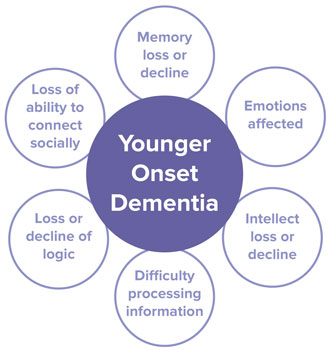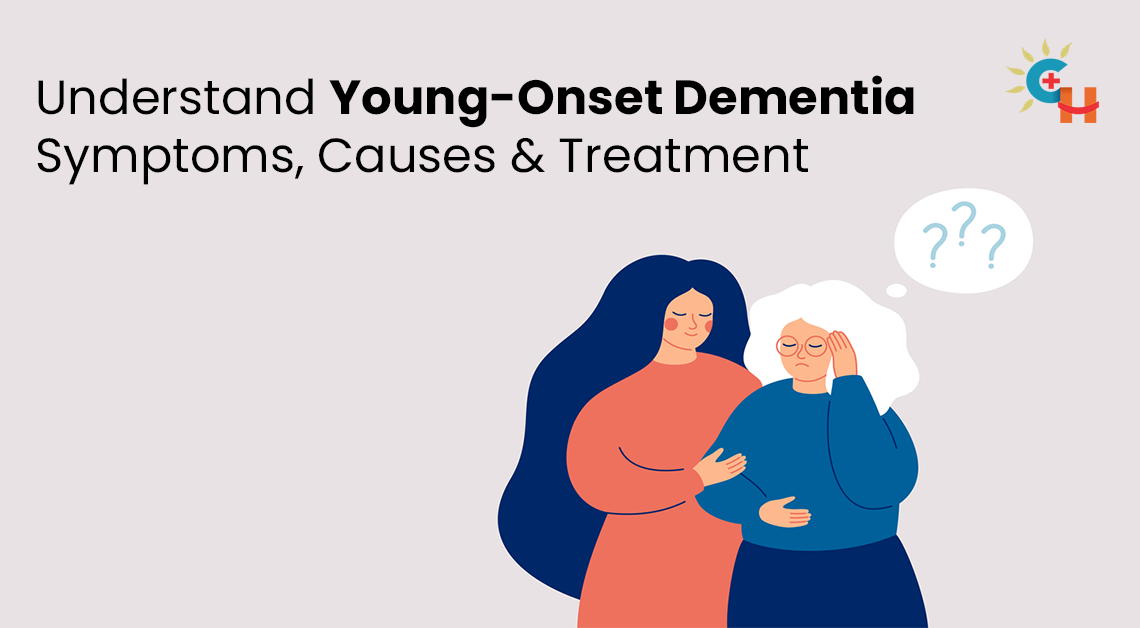7 Early Signs You May Be Facing Early Onset Dementia
7 Early Signs You May Be Facing Early Onset Dementia
Blog Article
Understanding the Impact of Dementia on Daily Life and Caregiving
Dementia affects every day life in extensive means, affecting not just those detected but additionally their caretakers. As cognitive decline advances, you could observe changes in interaction and routine that challenge both parties. Understanding these changes is important for keeping self-respect and engagement. How do you adapt your caregiving methods to support someone traversing this facility journey? The solutions could stun you as we discover the nuances of this experience.
The Stages of Dementia and Their Impacts on Every Day Life
As you browse the journey of dementia, recognizing its phases can noticeably influence how you manage every day life. Mental deterioration generally proceeds with three main stages: early, center, and late. In the beginning, you might observe occasional memory gaps or trouble finding the appropriate words. This can bring about frustration, but identifying these indications early helps you adjust your regular and seek support.
During the center phase, you'll experience a lot more noticeable cognitive decrease. Daily tasks might come to be tough, and keeping your independence may need modifications. Using tips and streamlining your setting can help.
In the late phase, people commonly require significant help with day-to-day tasks. Planning for treatment comes to be vital, concentrating on convenience and quality of life. By recognizing these phases, you're far better outfitted to respond proactively, ensuring you or your liked one can navigate the obstacles with self-respect and elegance.

Adjustments in Communication and Social Communication
Just how do changes in communication impact your daily interactions as mental deterioration advances? As dementia breakthroughs, you might see that basic discussions become tough.
You may discover it less complicated to connect with these ways as opposed to depending only on talked language. Paying attention abilities can also change; you might locate it harder to follow discussions or remember what was simply stated (Early Onset Dementia). This can cause misunderstandings or feelings of seclusion
Encouraging patience and creating a supportive environment can aid. Taking part in tasks that foster link, like music or art, can boost social interactions. Remember, maintaining partnerships is still possible; it's almost adapting to new means of connecting.
Impact on Daily Routines and Activities
While steering everyday regimens, you'll likely discover that jobs you as soon as finished effortlessly ended up being much more tough as dementia advances. Straightforward tasks like food preparation, clothing, or perhaps bathing may need more effort and time. You could locate yourself failing to remember actions in acquainted regimens or battling to remember where you put products. This can cause stress not simply for you, yet also for those around you.
Planning your day can really feel overwhelming, making it harder to stay with a routine. You might require suggestions for visits or to take medicines. Adjusting your setting can help; for circumstances, identifying things or using lists can simplify tasks. Participating in repeated, organized tasks can also give comfort and a feeling of success. Remember, it's fine to ask for assistance. Bordering yourself with helpful friends or family can make handling these adjustments a bit easier.
Emotional and Behavior Obstacles
Guiding via daily routines can produce not just sensible challenges, yet behavior and also emotional ones. You might see adjustments in state of mind, such as boosted stress and anxiety or frustration, which can originate from confusion or difficulty in finishing jobs. As you navigate these moments, it is essential to acknowledge that your liked one might reveal their feelings through habits like agitation or withdrawal.
These psychological feedbacks can be unpredictable and might emerge without caution, leaving you both sensation overwhelmed. You could find that familiar settings or routines can help in reducing stress and anxiety, yet keeping persistence comes to be significant. It is vital to verify their sensations, also if you don't totally comprehend them.
The Function of Caregivers in Sustaining People With Mental Deterioration
As a caretaker, you play a necessary role in giving emotional support for individuals with dementia. Developing daily treatment routines can create a feeling of stability and comfort, aiding to relieve their anxiety. By comprehending their demands and using efficient methods, you can greatly enhance their top quality of life.
Emotional Assistance Approaches
When caring for a person with mental deterioration, understanding the psychological landscape is necessary for offering reliable support. You'll commonly discover that perseverance and compassion go a lengthy way. Validate their sensations; helpful resources if they reveal complication or disappointment, recognize it without disregarding their feelings. Simple motions, like holding their hand or maintaining eye contact, can develop a feeling of safety and security. Attempt to engage in activities that they delight in, as this can stimulate delight and link. Bear in mind to communicate clearly and gradually, using a tranquil tone. Motivate expression with songs or art, which can act as an effective outlet. Ultimately, do not neglect to care for your very own emotional demands; looking for assistance on your own can boost your capacity to look after them.
Daily Treatment Routines
Developing day-to-day treatment routines is essential for supplying security and convenience to individuals with dementia, as these routines can aid minimize confusion and anxiety. You can start by outlining a consistent schedule for dishes, tasks, and remainder. This predictability helps your loved one really feel a lot more safe and secure and engaged.
Incorporate acquainted tasks, like folding laundry or watering plants, which can evoke positive memories and promote a feeling of achievement. Use aesthetic hints, such as calendars or lists, to lead them through the day.
Be flexible, though; adapt regimens as required based upon their state of mind or energy levels. Frontotemporal Dementia. Remember, your persistence and understanding are crucial in steering their transforming demands, ensuring they feel sustained and valued throughout their day-to-day life
Producing a Safe and Comfortable Living Atmosphere
Producing a comfortable and risk-free living setting is important for people with mental deterioration. You'll desire to make home security adjustments that decrease threats and ensure experience to give a sense of comfort. By concentrating on these facets, you can assist develop a space that sustains both safety and health.
Home Security Modifications
As you browse the difficulties of dementia, making home safety alterations can significantly boost convenience and protection. Start by removing tripping hazards like carpets and clutter, ensuring sidewalks are clear. Set up grab bars in washrooms and non-slip floor coverings in the shower to avoid falls. Consider making use of brighter illumination and evening lights to improve visibility, especially throughout nighttime. Tag i was reading this vital locations, such as the restroom and cooking area, with clear signs to assist with alignment. Secure any sharp objects or hazardous substances out of reach. In addition, examine your home's locks and alarm systems to confirm they're straightforward and provide peace of mind. These alterations not just advertise safety however likewise motivate independence, permitting your enjoyed one to really feel more comfortable in their setting.
Comfort and Knowledge
After guaranteeing a risk-free atmosphere with essential modifications, fostering convenience and experience is vital for individuals with dementia. Begin by individualizing their space. Use familiar shades, decors, and photos that stimulate happy memories. A favorite blanket or chair can provide a complacency. Keep a consistent regular to help them really feel based and minimize anxiousness. Easy, acquainted dishes can likewise produce a reassuring environment. Maintain pathways clear and clutter-free to avoid complication. Incorporate soft lighting, as bright lights can be disorienting. Think about including comforting fragrances, like lavender, to promote relaxation. Participating in familiar tasks, such as listening to songs or horticulture, can improve their feeling of belonging, making their living environment a real refuge.
Techniques for Efficient Caregiving and Support
While navigating the obstacles of dementia care can really feel frustrating, executing efficient methods can considerably boost both the caregiver's and the individual's everyday experience. Begin by developing a routine; predictability helps in reducing anxiousness for both you and your enjoyed one. Use clear, basic communication-- short sentences and direct questions can protect against confusion.

Don't fail to remember to take treatment of yourself; routine breaks and get in touch with support system. Sharing experiences with others in comparable scenarios can give valuable understandings and emotional alleviation.
Finally, continue to be person and flexible. Dementia can bring unpredictable adjustments, so adjusting your method is crucial. By employing these strategies, you can promote a much more favorable environment that benefits both you and your liked one.
Often Asked Concerns

What Are the Various Sorts Of Dementia?
You'll locate a number of types of dementia, consisting of Alzheimer's, vascular dementia, Lewy body mental deterioration, and frontotemporal mental deterioration. Each kind affects memory and cognitive function differently, so understanding the distinctions is important for proper diagnosis and treatment.
Just How Can I Help Someone With Early-Stage Dementia?
You can assist someone with early-stage dementia by being client, offering support, and urging them to participate in activities they delight in. Maintaining regimens regular and preserving open communication can also make a substantial difference in their every day life.
Are There Financial Resources Available for Mental Deterioration Care?
Yes, there are funds readily available for dementia care. You can explore federal government support programs, nonprofit companies, and insurance coverage options. It's also smart to seek advice from local companies for particular resources tailored to your situation.
What Legal Considerations Should Caregivers Know?
As a caretaker, you must consider power of attorney, health care proxies, and guardianship laws. It's vital to recognize the lawful civil liberties and responsibilities you hold, guaranteeing your liked one gets appropriate care and defense.
How Can I Manage Caretaker Stress?
You can deal with caretaker tension by focusing on self-care, seeking support from groups or friends, establishing reasonable expectations, taking breaks, and exercising relaxation strategies. Keep in mind, your well-being matters just as page long as the individual you're looking after.
Comprehending the Effect of Mental Deterioration on Daily Life and Caregiving.
As you browse the trip of dementia, comprehending its phases can considerably affect just how you take care of day-to-day life.While steering everyday routines, you'll likely notice that tasks you when completed effortlessly ended up being a lot more tough as mental deterioration progresses.Developing everyday care routines is essential for supplying security and comfort to individuals with mental deterioration, as these regimens can aid lower complication and stress and anxiety.While navigating the difficulties of mental deterioration care can feel frustrating, applying effective approaches can greatly improve both the caretaker's and the patient's everyday experience.
Report this page